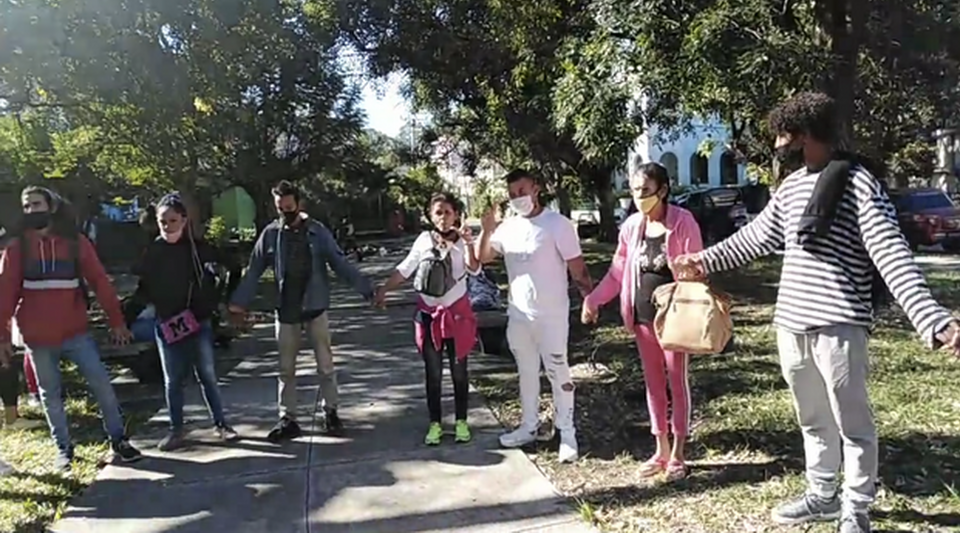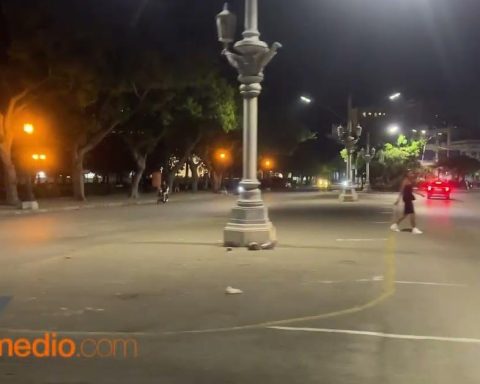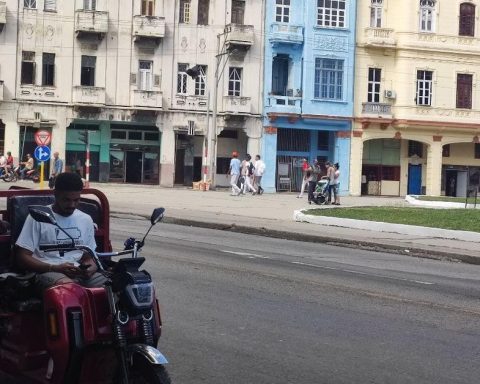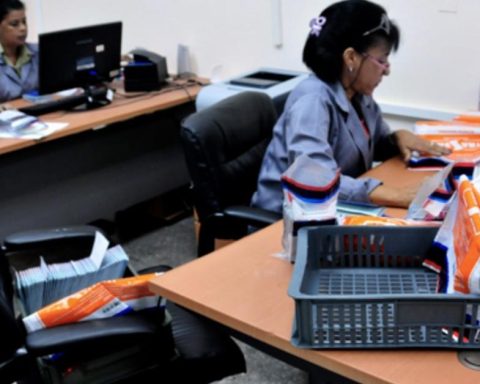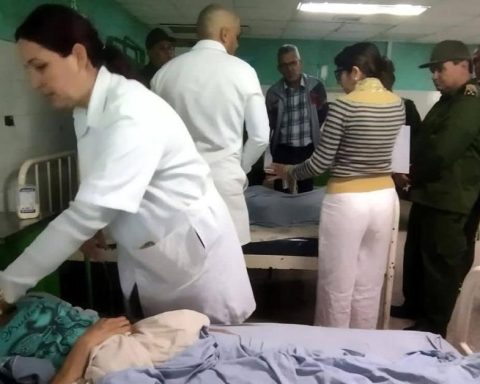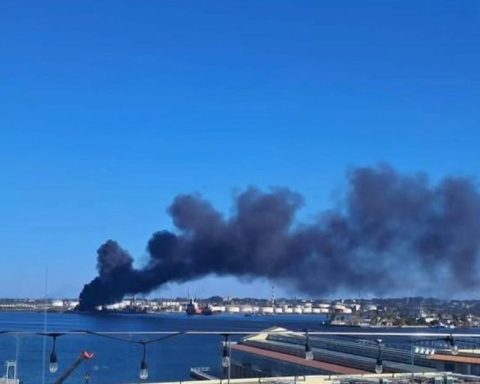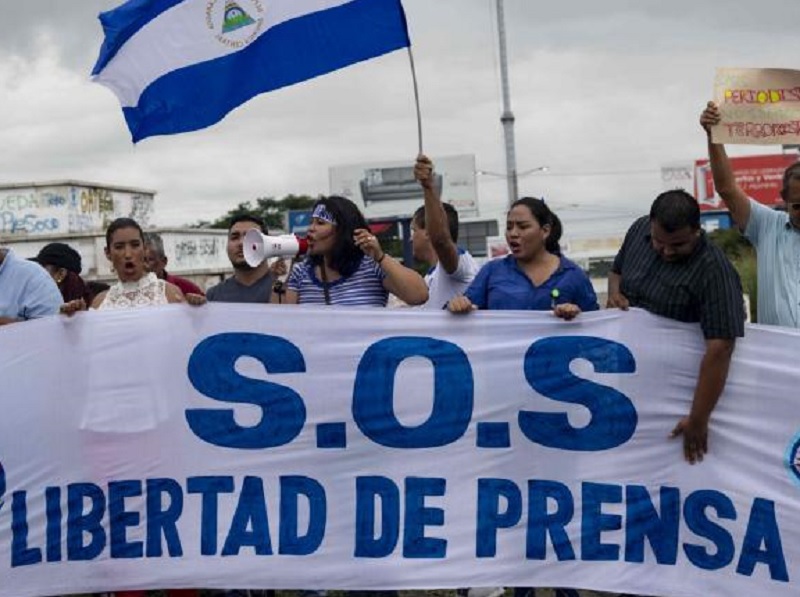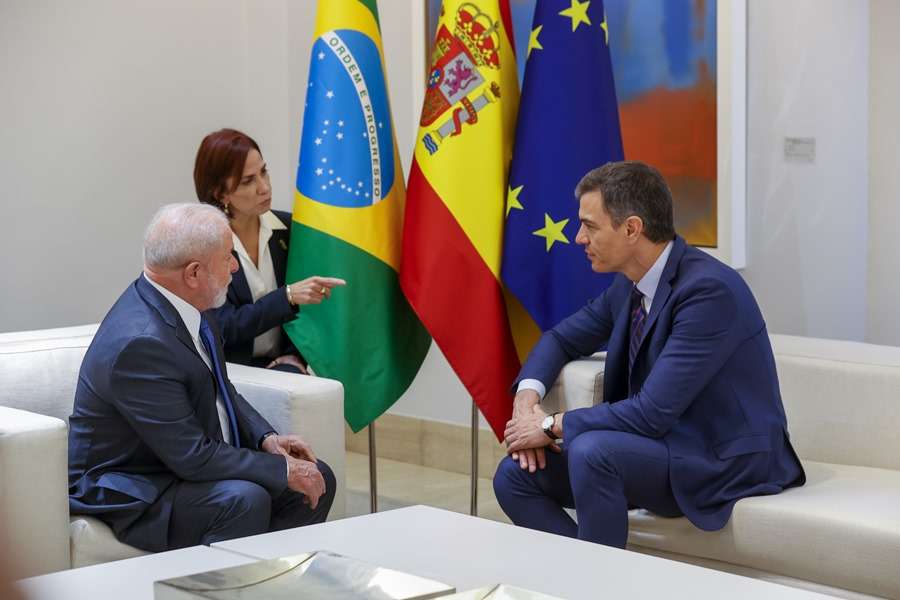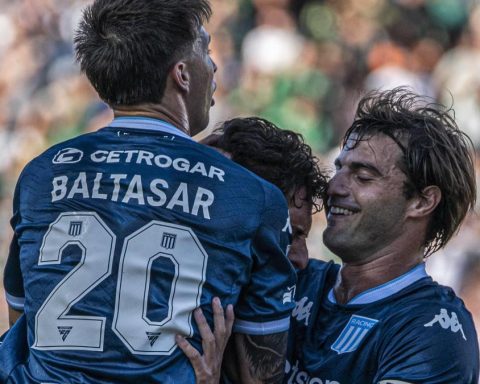A letter addressed this Wednesday to the European Parliament by 50 relatives of Cuban political prisoners exposed the precarious situation of those detained after the massive protests of July 11 on the island. The letter highlighted the unfair treatment that prisoners receive and the immobility of the regime in the face of attempts international mediation to achieve their freedom.
The relatives, who sent the letter to Roberta Metsola, president of the organization, recall that after the 9/11 protests, in September 2021, the European Parliament approved the resolution P9-TA (2021) 0389, which condemned the “government repression” that was being reported from numerous cities in Cuba. The signatories describe this document as “one of the most forceful texts in favor of the freedom of the Cuban people.”
They also allege that although the Russian invasion of Ukraine constitutes one of the most pressing problems in the European region, the release of Cuban political prisoners should also be a matter of concern for world democracies.
The most recent attempt at mediation, they say, occurred during the visit of Cardinal Beniamino Stella, special envoy of Pope Francis and former Vatican ambassador during the Special Period. Stella, supported by the pontiff, had requested “an amnesty or some form of clemency” for political prisoners. Members of the Cuban Episcopal Conference also joined the claim, without a concrete response from the government.
Although Stella’s statements suggested that a conversation had taken place at the highest level about the prisoners, Miguel Díaz-Canel’s public reaction was to affirm that he would try to find “a solution to the expectations of both parties.” But the negotiation, in which several countries, such as Spain, affirmed that they were willing to offer asylum to the interested parties, again came to nothing.
“They suffer from starvation, lack of medical attention and diseases of all kinds, intimidation with common prisoners, beatings and extreme punishment, including threats to their relatives”
“Months go by and the authorities do not take this measure, perhaps because of their usual political calculations,” the relatives denounced in their letter. “But while the Cuban power plays its chess and other political actors, democratic or not, maintain or reinforce their interests on the Island, our relatives languish in the Cuban dungeons, many of them sick and without any hope of being released or treated fairly. “.
The letter states with alarm that Cuba has more political prisoners and prisoners of conscience in its jails than any other country in the Western Hemisphere. In addition, he describes as “indisputable” the situation of poverty in which the majority of the incarcerated lives, and that misery has an even greater impact in prisons, whose conditions are appalling.
“They suffer from starvation locked up, lack of medical attention and diseases of all kinds, intimidation with common prisoners, beatings and extreme punishments, including threats to their relatives who, certainly, receive pressure of all kinds, suffer movement restrictions and meeting, their statutory visits are sabotaged, and they are blackmailed into alleviating to a certain degree the situation of their loved ones, in exchange for accepting ideological re-education, and giving up their search for justice and international solidarity,” the text details. .
The relatives appeal to Europe for its traditional defense of human rights and for “the values it represents,” among which is the “cause of freedom” of peoples like Cuba. Lastly, they demand a reactivation of the contents of the resolution signed by Parliament after 9/11 and the application of the Political Dialogue and Cooperation Agreement signed between Havana and Brussels, which endorses the demand for the release of political prisoners.
The document was signed by fifty relatives and members of the association Mourning Cuba –a movement that brings together sympathizers and relatives of the incarcerated–, among which are Saily Nuñez, wife of the prisoner Maikel Puig; Liset Fonseca, mother of Roberto Pérez; Luis Aguilar, father of Walnier Aguilar; Eralidis Frómeta, wife of Lázaro Yuri Valle Roca; and Marta Perdomo, mother of Nadir and Jorge Martín.
________________________
Collaborate with our work:
The team of 14ymedio He is committed to doing serious journalism that reflects the reality of deep Cuba. Thank you for accompanying us on this long road. We invite you to continue supporting us, but this time becoming a member of our newspaper. Together we can continue transforming journalism in Cuba.
